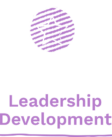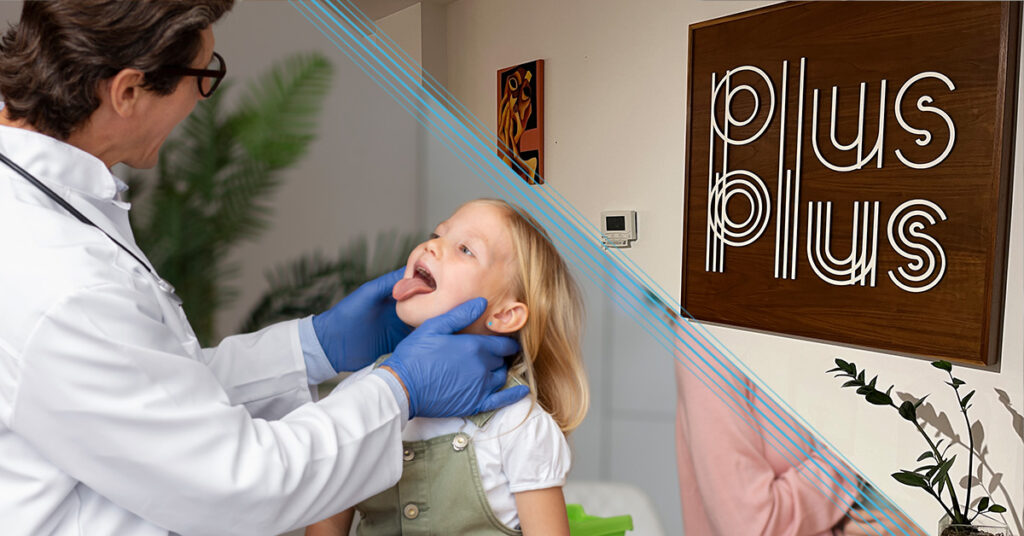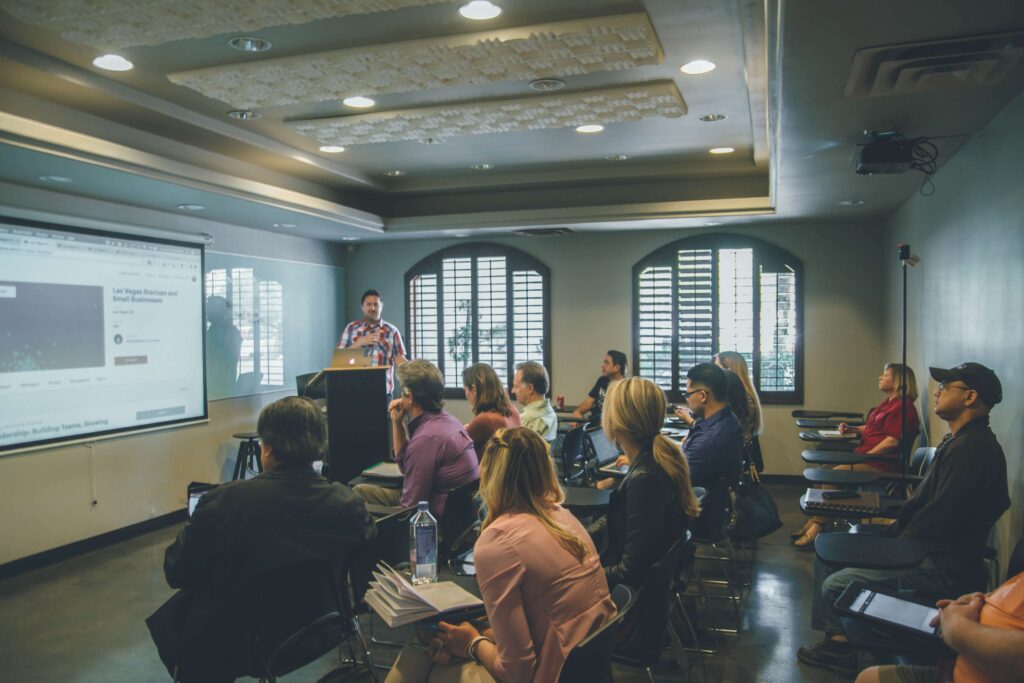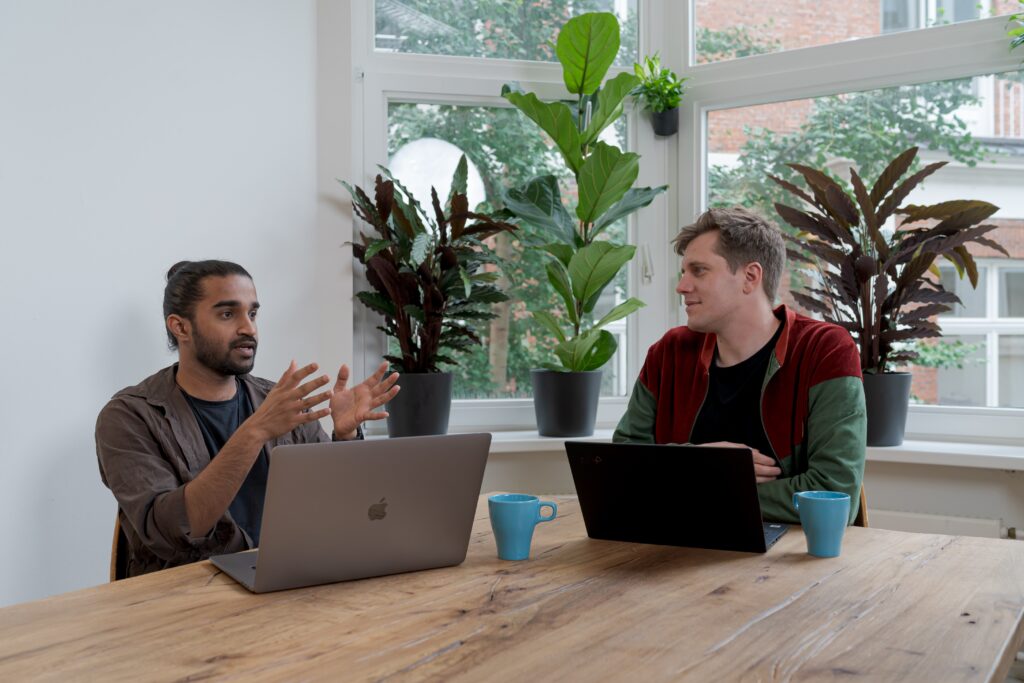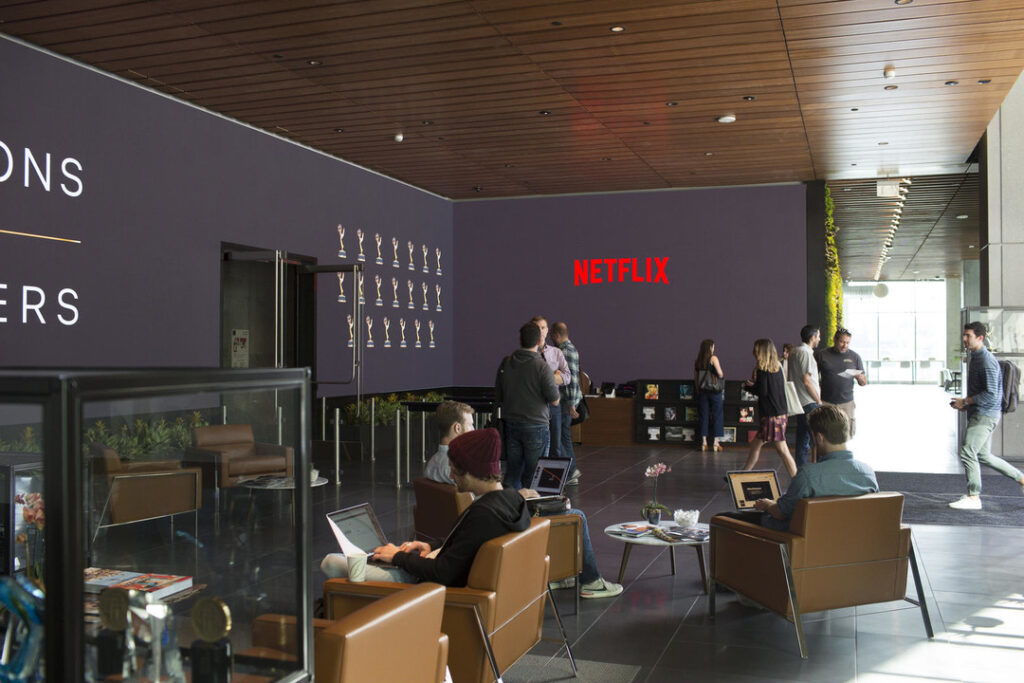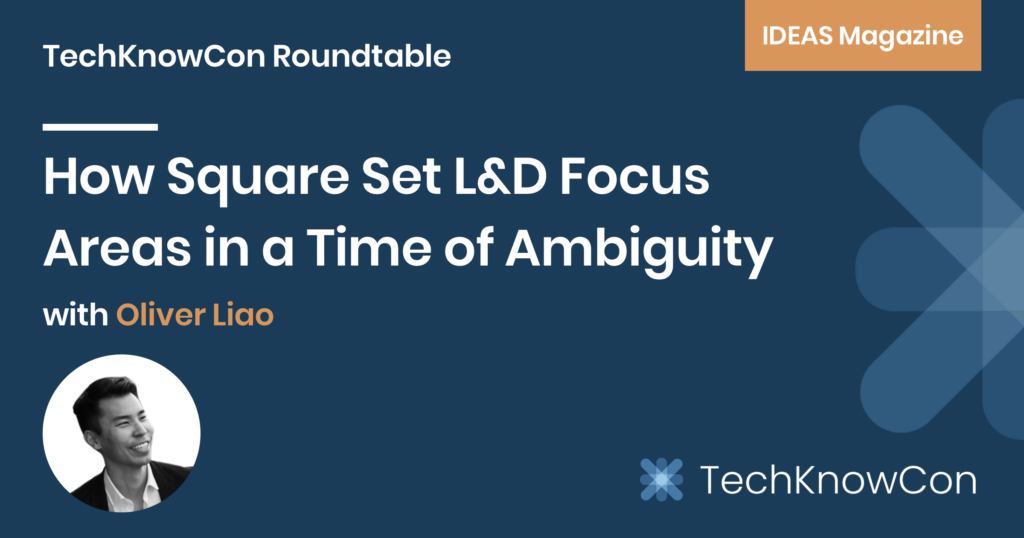In an ever-changing business environment, leadership development is more important than ever. Victoria Sevilla is responsible for Leadership Development on the Global People Development team at cloud infrastructure and business mobility software company VMware. She describes how her team is changing the way that leadership development is carried out, and the success of their award-winning Genius Maker program.
The Genius Maker Program
Many companies do not focus on training for the people manager. There’s emphasis on leadership development for the executive level. There’s emphasis on development for new hires. But the people who are and have been doing most of the work — the Manager, Senior Manager, Director, and Senior Director — are not always the beneficiary of incredible training programs. At VMware, it’s different.
VMware’s Genius Maker program is a two-and-a-half-day training program that focuses entirely on people managers. Managers get skills on managing themselves, their teams, and their brand. It’s an entirely different training experience.
“Genius Maker was named after a concept in Liz Wiseman’s book Multipliers,” said Sevilla. It’s about leaders who use their intelligence to amplify the capabilities of the people around them; they hold the space for the brilliance of others and utilize their own native genius in the process.”
Training has traditionally been a top-down, one-way presentation of knowledge and information, and that’s hardly engaging for the participant. The Genius Maker program, however, is much more experiential, with participants moving about and speaking to each other throughout the training.
Sevilla said, “Essentially, we present employees with information on leadership effectiveness and we back it up with evidentiary support through research findings in applied positive psychology, neuroscience, communication theory and leadership effectiveness research in general. We follow Martin Buber’s philosophy of being an unfolder of knowledge rather than an imposter. We say: These are the ‘tools’ that you can use to create and sustain a highly productive and cohesive team. Try them out in the way that’s best for your team.”
Sevilla thinks this open and interactive approach is a significant part of what makes the program so successful. “Individuals will always have different training and development needs, and it’s crucial that they are engaged in understanding the material and take an active lead in applying it to their own situations. This is so much more effective than participants being told that they all have to lead in the exact same way.”
“I don’t think development and training have to be about changing your whole entire mindset and viewpoint in one experience — that’s so overwhelming. It’s about understanding that small steps, small changes in behavior, can make a big impact. Remember, you can win a race by 1/100th of a second. So, you can approach an L&D experience by asking yourself ‘what’s the change you’re going to make, or the one thing that you’re going to implement that will give you that leading edge?’”
A new approach
Sevilla identified three parts of the training:
- Manage Yourself — we want people to first become more aware of how to shape their own behaviors, beliefs and thinking to drive greater results, increase influence, and build more trust with others. Gandhi knew that you must first ‘be the change you want to see in the world.’
- Manage Your Team — then we focus on the team, and introduce VMware’s key management practices that are connected to our company values.
- Manage Your Brand — lastly, we have participants take everything they’ve learned and apply it to the creation of their brand. We use the VIA character strengths assessment to help people find their ‘power zone’ — the place where talents/skills and signature character strengths are used together to fully realize and utilize your native genius.
“We hear people who have been at other strong, wonderful companies tell us, ‘I haven’t had a training this incredible at any company I’ve ever worked at.’ Managers tell us that Genius Maker changed them as a leader, as a manager, as a spouse, and as a person. That’s how deep the changes can go. Why? Because we engage them as individuals — we ask deep questions and we don’t give them right/wrong or canned answers. We let them explore their own answers with others in the room. They run the experience because of their own background. They are the geniuses in the room, and we make sure they feel that right away. We want them to take that feeling back to their teams.”
Leading from every chair
Sevilla further discussed what happened following the introduction of the Genius Maker program. “As the new take on management training took off, we became inundated with requests for whole teams, not just managers, to take the course. Managers wanted their teams to know what they knew. They wanted their teams to share a nomenclature and be armed with the same knowledge that could foster success and well-being. Managers came to realize that their job wasn’t to be a sole source of motivation; their job was to help unlock passion and potential so that their team members could be intrinsically motivated. And we know that is the kind of motivation that has staying power.
“The more our business transformed, the more we needed that ability to be communicatively adaptable. A computer scientist and programmer, named Melvin Conway coined a phrase that is referred to as Conway’s Law in 1967. Basically, Conway’s Law recognizes this truth: organizational structure and the way people communicate within it-mimics the product. If you want interoperable products, you must have communicably interoperable people. So, let’s increase communication effectiveness through education. Let’s make the tools that can be applied to anyone of any title available to individual contributors. And that’s when I created the individual contributor version of Genius Maker…Original Genius (O.G.). It’s designed for empowerment. We often say that our customers use the power of software to create new possibilities. If this is what we do for our customers- empower them to create new possibilities- let’s do that for our employees through knowledge/tools.
Estee Lauder had that saying, ‘lead from every chair’. Everybody can lead, everyone’s influential in their own way. Sometimes the individual contributor, or the principal engineer — who is not a people manager — is the most influential; the manager is not necessarily always the ‘leader.’ We want to give people the freedom to hold the reigns of their career, while we provide them with the cart, the horse, and a map.”
Going beyond the training program
After people have gone through the Genius Maker course, they are given the option to have four executive coaching sessions, with coaches who have a background in the skills that are taught about managing oneself, one’s team, and one’s brand. The coaches can take the concepts that people have been exposed to and bring in the individual’s goals and expectations. Sevilla said, “It’s as if you’re going from content to context. You’ve just learned this strong and personal content, and then you go back to your desk, stacked high with urgent to-do’s. Coaching allows Genius Maker alums to incorporate the strong learnings into their actual work.
How effective could four hours of coaching be following the two-and-a-half-day training? In the first coaching session, the managers bring up their toughest work challenges and report how they are doing on those challenges. In the fourth and last coaching session, they report that they have improved their progress on their toughest work challenges by over 50% — in just four hours of coaching.
Sevilla summaries the coaching experience is unanimously successful. “People love the deeper dive follow-up coaching gives them. And I think that’s where things are going in L&D programs — high-touch, personal, one-to-one coaching. We know that this approach really helps participants retain the knowledge they gained from the course. We often hear about how excited participants felt during and right after the program, but the real transformation came after, with the coaching.”
After the program, the participants are also encouraged to stay in touch with each other, sustaining the relationships that they have formed in the class.
“Leadership development is vulnerable work. Leadership development is self-development, Sevilla said. Participants are looking at themselves and asking, ‘What can I do better?’ When I look at what people are asking for help on, even the most data-driven people, it’s communication skills, adaptability, and leadership presence; as well as mindfulness, managing stress, how to become responsive and not reactive, and how to manage your personal brand.”
Impressive results
It can be hard to measure the results of these types of programs, and usually, such programs would resort to qualitative metrics rather than quantitative data. However, there is certainly evidence that backs up Sevilla and her team’s approach.
In the company’s annual survey, there was a 50% increase in manager effectiveness as rated by employees reporting to a manager who had gone through the Genius Maker program, versus employees with a manager who had not. The alumni of Genius Maker also voted for the program to win a global award.
“The concepts that we introduce in Genius Maker are now being used in other programs throughout our company, and that’s an accomplishment because now we’re looking at leadership differently,” said Sevilla. “It’s a shift from command-and-control to principle-based organizations, moving from silos to integration with the cultivation of social capital. We’re humbled to have had the impact that we’re hearing this program has, and we hope we can continue to energize people managers. They’re important to us.”
